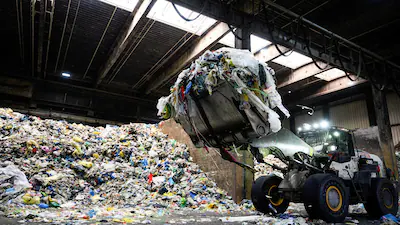 Dr. Seema Javed
Dr. Seema Javed
The world has once again failed to put a stop to plastic pollution despite grave concerns about its impact on human health and the marine ecosystem due to microplastics.
Following 10 days of negotiations, the Intergovernmental Negotiating Committee (INC) talks to develop an international legally binding instrument on plastic pollution—including in the marine environment—adjourned early on 15 August. Delegates discussing the world’s first legally binding treaty to tackle plastic pollution failed to reach consensus. The Committee agreed to resume negotiations at a future date, yet to be announced.
The meeting closed with a clearly expressed desire by Member States to continue the process, despite recognizing significant differences of opinion. French Ecology Minister Agnès Pannier-Runacher told the closing session that she was “enraged because, despite genuine efforts by many and real progress in discussions, no tangible results have been obtained.”

This resumed fifth session (INC-5.2) saw more than 2,600 participants gather at the Palais des Nations in Geneva, including over 1,400 Member delegates from 183 countries and nearly 1,000 Observers representing more than 400 organizations. Around 70 Ministers and Vice Ministers, as well as 30 other high-level representatives, also held informal roundtables on the margins of the session.
“This has been a hard-fought 10 days against the backdrop of geopolitical complexities, economic challenges, and multilateral strains. However, one thing remains clear: despite these complexities, all countries clearly want to remain at the table.
“While we did not land the treaty text we hoped for, we at UNEP will continue the work against plastic pollution—pollution that is in our groundwater, in our soil, in our rivers, in our oceans, and yes, in our bodies,” said Inger Andersen, Executive Director of the UN Environment Programme (UNEP).
The goal of INC-5.2 was to agree on the instrument’s text and highlight unresolved issues requiring further preparatory work ahead of a diplomatic conference. The session followed a structured approach—beginning with an opening plenary, moving into four contact groups addressing key areas such as plastic design, chemicals of concern, production caps, finance, and compliance, followed by a stocktaking plenary, informal consultations, and concluding with a closing plenary on 15 August.
A Chair’s Text from INC-5.1 in Busan served as the starting point for negotiations at INC-5.2, with the Chair releasing a Draft Text Proposal and later a Revised Text Proposal during the session. Despite intensive engagement, Members of the Committee were unable to reach consensus.
Diplomats and climate advocates had warned earlier this month that efforts by the European Union and small island states to cap virgin plastic production—fueled by petroleum, coal, and gas—faced opposition from petrochemical-producing countries and the U.S. under President Donald Trump.
“Failing to reach the goal we set for ourselves may bring sadness, even frustration. Yet it should not lead to discouragement. On the contrary, it should spur us to regain our energy, renew our commitments, and unite our aspirations,” said INC Chair Ambassador Luis Vayas Valdivieso. “It has not happened yet in Geneva, but I have no doubt that the day will come when the international community will unite its will and join hands to protect our environment and safeguard the health of our people.”
This INC process began in March 2022, at the resumed fifth session of the UN Environment Assembly (UNEA-5.2), when a historic resolution was adopted to develop an international legally binding instrument on plastic pollution, including in the marine environment.
“As this session concludes, we leave with an understanding of the challenges ahead and a renewed and shared commitment to address them,” said Jyoti Mathur-Filipp, Executive Secretary of the INC Secretariat. “Progress must now be our obligation.”
The session also saw active participation from civil society—including Indigenous Peoples, waste pickers, artists, young people, and scientists—who raised their voices through protests, art installations, press briefings, and events in and around the Palais.
The Geneva session followed INC-5.1, which took place in November–December 2024 in Busan, Republic of Korea. That meeting was preceded by four sessions: INC-1 in Punta del Este in November 2022; INC-2 in Paris in June 2023; INC-3 in Nairobi in November 2023; and INC-4 in Ottawa in April 2024.
 Jubilee Post News & Views
Jubilee Post News & Views





